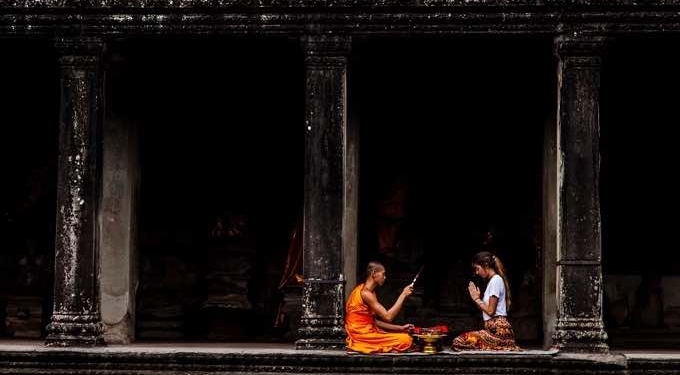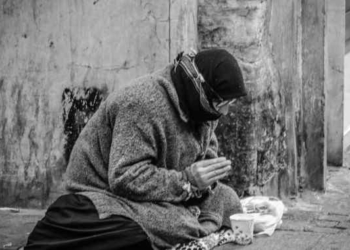
The tourism industry has exploded all over the world. According to the World Tourism Organization, more than 1 billion tourists travelled abroad in 2014. Since then, tourism in foreign countries increased even more. Many choose to stay off the beaten paths choose increasingly exotic destinations, at least for the Western human. Countries such as Saudi Arabia and Malaysia have grown in popularity and the cultural gap can cause all sorts of issues for both travellers and locals. However, travelling in a mindful and respectful manner will ensure a better experience for all parties involved.
For many tourists, the exoticism with which they are welcome in other parts of the world is there only for the spectacle. Below are some tips and tricks on being respectful as a tourist to the local culture, economy and environment in your adventures.
Poverty is not entertainment
A concerning trend that has been lately observed is the way in which travel agencies treat and profit from poor areas of the world. Slum tourism is sadly a notion and experience that exists and many tourism agencies pride themselves of offering similar experiences to tourists.
The favelas in Brazil, the slums in Mumbai and the rampant poverty in South Africa are not there for tourists’ entertainment. They are a reality with which the local struggle daily. They live in those places and as surprising as it might sound for the western civilization, they are deprived even from supplies necessary for their daily needs: they lack food, running water, medical care and proper education.
Instead of investing money in agencies that promise you the “ultimate poverty experience”, tourists should look forward to visiting those areas of the world where similar conditions are a daily reality, organized by locals and NGOs. For instance, an NGO is organizing in Cape Town, South Africa guides where tourists have the opportunity to give a hand to locals in agricultural matters, help them with day-care projects and early learning centres. This is a far more rewarding experience than slum tourism.
Leave biases home
Everybody has biases. They can be cultural, religious and economic. You might visit Israel just to experience close the entire Palestinian-Israeli division but from a biased point of view. When visiting countries, you are not familiar with, try to leave those home. We rarely try to fully understand the political, social and economic context of those areas that we visit. When visiting such areas, try to visit as much as you can from those landmarks that matter for the locals: mosques (if you are allowed), synagogues, and so on. For instance, a non-profit in Haifa, Israel is inviting tourists to dialogue and new experiences with the main scope of combating intolerance with dialogue and new experiences.
The NGO’s initiative is suggestively named “Museum Without Walls” meant to suggest that visitors will take direct contact with all cultures in the area. Haifa is a multicultural centre of the world where people from different cultural and religious backgrounds live in relative harmony.
Religion is more than an exotic spectacle

Visiting new places without being fully aware of the local religion and customs. While you may come from a liberal background, you may be an atheist or have little to no respect for your own religious, keep in mind that people in other areas of the world might have their entire culture developed around their own religion. And as long as you visit such places, you have to follow and respect those as well.
Many westerners have a cultural and religious shock when they visit Saudi Arabia, for instance. While coming for the exquisite touristic environment and the growing number of high-end luxury hotels in Madinah and Makkah, they completely overlook the local customs and practices.
Tourists should ensure that they follow the local etiquette when visiting sacred places like Makkah and Madinah. When visiting sacred cities, both followers of Islam and people of other religions should come in good faith and show good intention s and behaviour.
People of other religions should learn when and under what circumstances they are allowed to visit the most important landmarks in the area and make sure that they respect these. A great tip that you can use around religious landmarks would be visiting together with local community members that will introduce you to all cultural and religious norms. This will help you avoid displaying obnoxious behaviour.
Stop being ignorant of local cultures
There are many cases when local cultures are completely overlooked by tourists. They come to see the interesting places in different parts of the world without paying more attention or showing a good interest in local cultures, habits or customs.
While in some cases this might be caused by the language barrier, even when tourists visit with an English-speaking guide, they take little interest in local customs. In most of the cases, there will appear misunderstandings and distances between visitors and locals. These misunderstandings can be easily avoided if tourists would take a little more interest in learning the language. Of course, common basic expressions and words or if they would visit together with a guide. Other initiatives, like community-based cooperatives, will allow you to learn some of the local words and expressions while interacting with the locals and learning new skills at the same time.
These experiences go both ways: while you learn new things about the culture you visit, locals will also learn new, interesting things about your culture, social norms and customs. This is a great way to bring down cultural and linguistic barriers when travelling.
These are only several tips that tourists can use when travelling to new places that have a different culture and different customs than those that they are accustomed to. Avoid slum tourism and make sure that you follow through with all local customs. Use similar opportunities to broaden your knowledge and learning opportunities.















